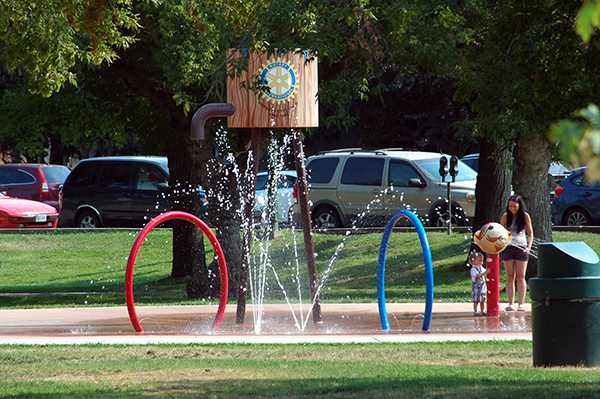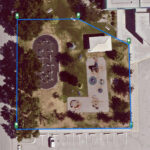Home »

Illegal drug possession prohibited in child-focused spaces
The B.C. government has received approval from the federal government to prohibit the possession of illegal drugs at playgrounds, spray pools, wading pools and skate parks.
 Effective Monday, Sept. 18, possession of illicit drugs within 15 metres of any play structure in a playground, a spray or wading pool, or a skate park will be prohibited.
Effective Monday, Sept. 18, possession of illicit drugs within 15 metres of any play structure in a playground, a spray or wading pool, or a skate park will be prohibited.
B.C. had made a request to Health Canada for an amendment to the decriminalization policy to add these spaces to existing exclusions on possession, including on the premises of K-12 schools and licensed child care facilities. The federal minister of mental health and addictions and associate minister of health has approved B.C.’s request.
With this amendment, police officers may enforce the Controlled Drugs and Substances Act when individuals are found to be in possession of illegal drugs in these child-focused spaces. Intoxication remains illegal in all public places.
“Our government is committed to breaking down barriers and connecting people to the supports they need,” said Jennifer Whiteside, B.C.’s Minister of Mental Health and Addictions. “We requested this amendment from Health Canada to ensure that families feel safe in their community while continuing to use every tool available to fight the toxic-drug crisis and save lives.”
“Everyone, especially children, should feel safe in their communities,” said Minister Ya’ara Saks, federal Minister of Mental Health and Addictions and Associate Minister of Health.
“This cannot be forgotten as we continue to work relentlessly to reduce substance use related harms. This amendment ensures that law enforcement has the tools needed to address public drug-use concerns, while continuing to provide support for some of the most vulnerable people in our community who use drugs. Our government recognizes the tremendous work B.C. has been doing across the full continuum of care to address the overdose crisis and we will continue to work with them to save lives.”
The province has also recently completed consultations on public drug use with key stakeholders, and is planning to introduce provincial legislation to further regulate public drug use this fall.
The B.C. government is also releasing data on mental-health and substance-use services in the province. This new data snapshot will show how the ministry is expanding mental-health and addictions care to help people connect services, including early intervention, harm reduction, treatment and recovery, and after-care supports, a Ministry of Mental Health and Addictions press release noted.
The data snapshot includes information about the impacts of decriminalization, including law-enforcement data, research on the emotional well-being of people living with addiction, and connecting people to services, including treatment.
Since decriminalization came into effect, the provincial and federal governments have continued to work closely to monitor this exemption to ensure it is meeting the desired outcomes and that any potential unintended consequences are promptly addressed.
“Senior police leaders from across British Columbia are grateful to Health Canada and the Province of British Columbia for hearing our concerns with respect to public consumption,” said Deputy Chief Fiona Wilson, vice-president, BC Association of Chiefs of Police.
“Although police leaders support decriminalization, we heard feedback from our communities about the need to ensure police have appropriate tools to address areas of concern, which prompted the BC Association of Chiefs of Police to advocate Health Canada to add additional exceptions to the exemption. There is a clear need to ensure everyone feels safe in public places, while also ensuring people who use drugs are provided with alternate pathways of care.”
In May 2022, the federal government approved B.C.’s exemption request under the Controlled Drugs and Substances Act so that adults (18 and older) are not subject to criminal penalties if found in possession of up to 2.5 grams of certain illegal drugs for personal use from Jan. 31, 2023 to Jan. 30, 2026.
Instead, they are offered information about local health and social services, as well as local treatment and recovery options, if requested.
e-KNOW file photos
e-KNOW







